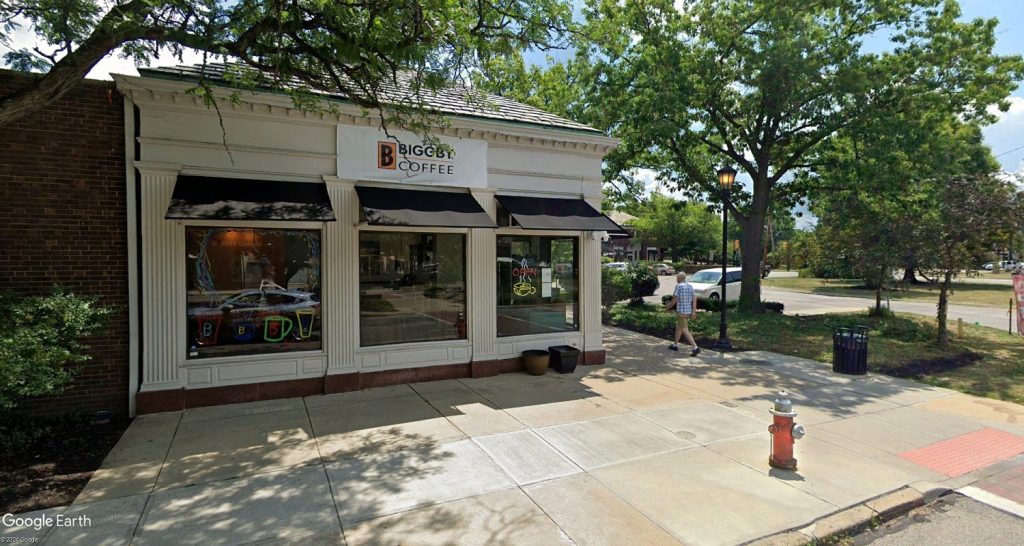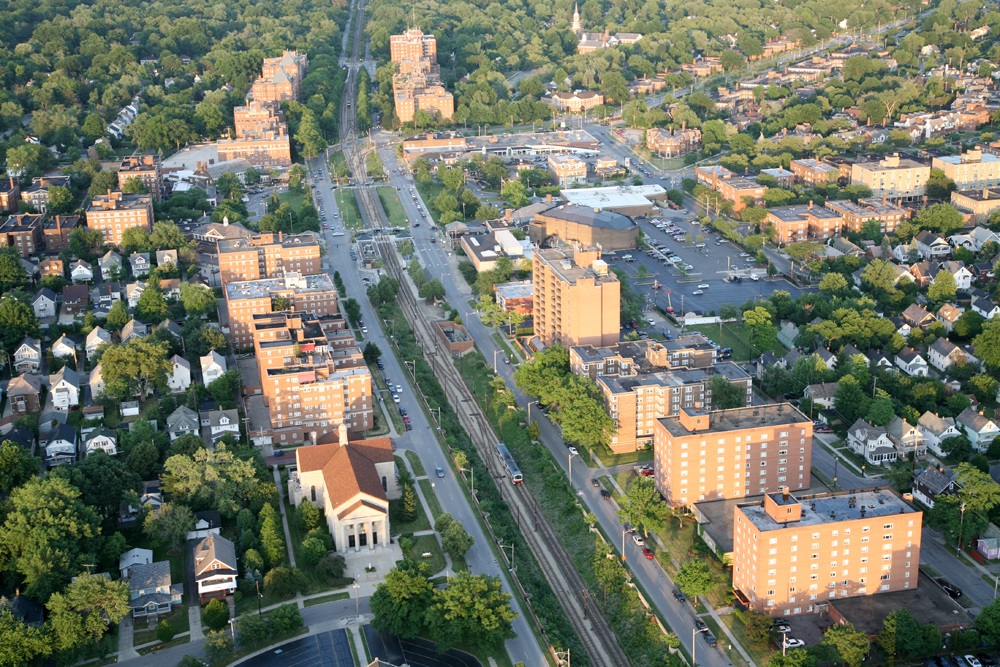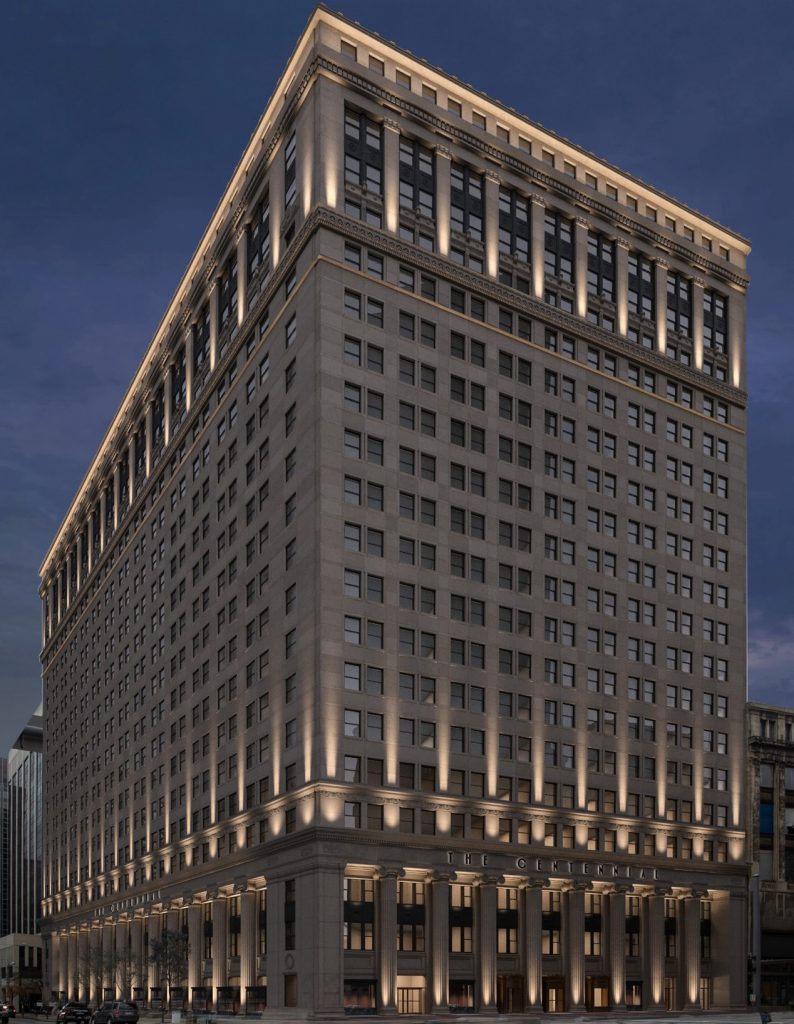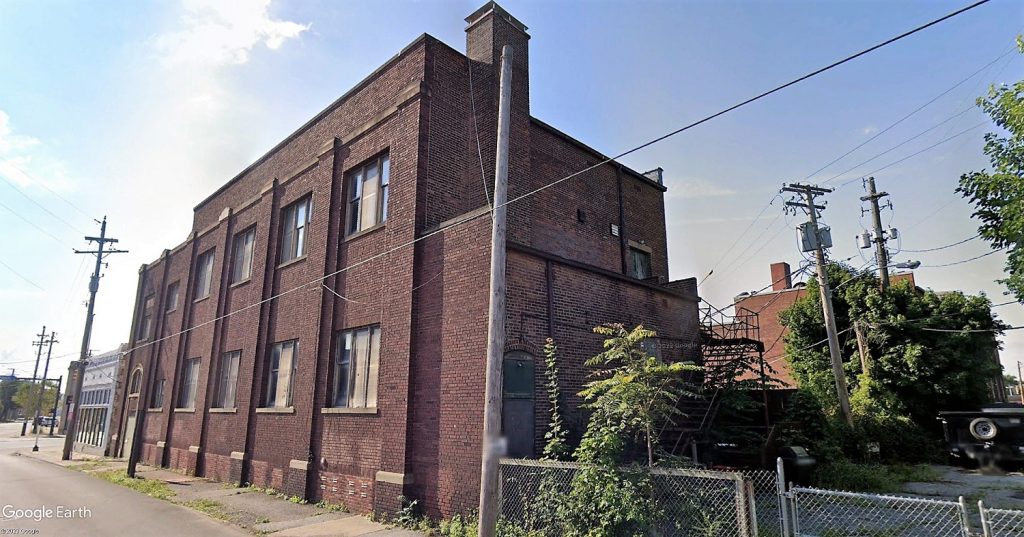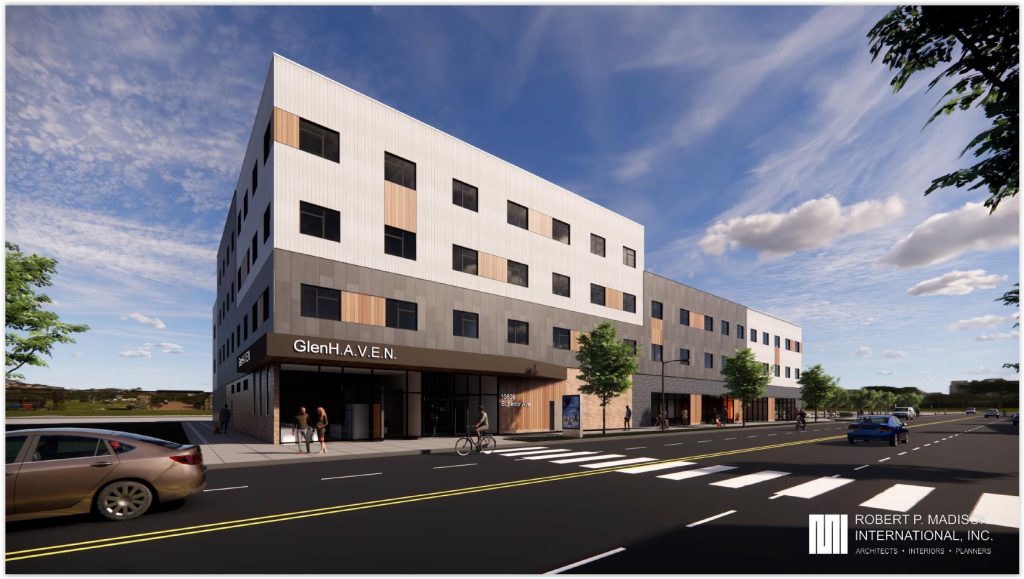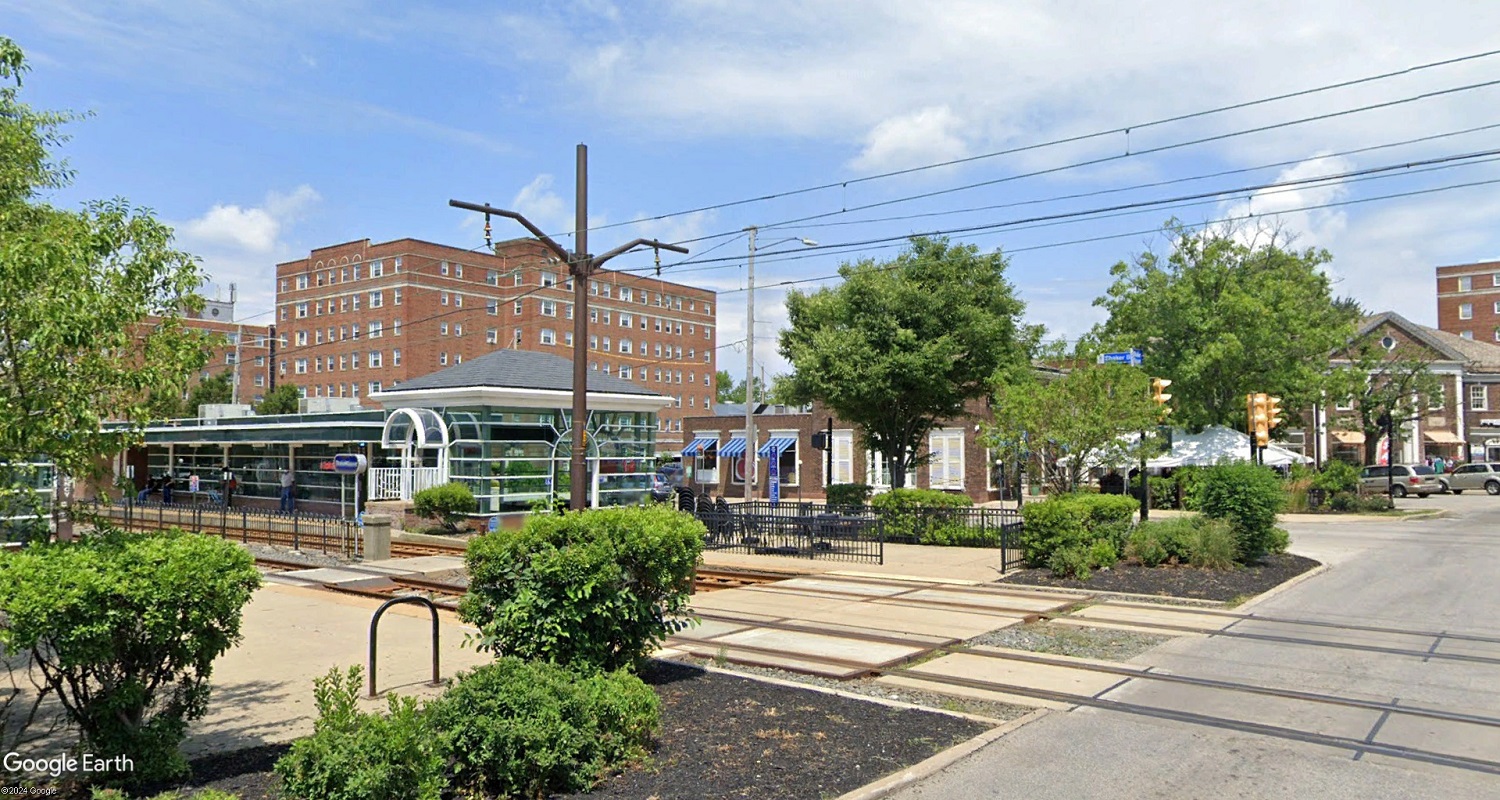
Making improvements to Cleveland’s Shaker Square is essential to keeping it vibrant and attractive as a commercial and transportation center for sustaining the surrounding neighborhoods as well. The new owners of the square are working to address deferred maintenance there and so far have made about $4.5 million worth of repairs and improvements (Google). CLICK IMAGES TO ENLARGE THEM.
Owners provide summary of improvements
ARTICLE UPDATED SEPTEMBER 3, 2024
Two years ago this month, Cleveland Neighborhood Progress (CNP) and Burten, Bell, Carr, Inc. (BBC) acquired Cleveland’s historic but faded Shaker Square mixed-use district. Today, the new owners outlined what they considered to be significant work and investment in making capital improvements to the property and carrying out a retail strategy to restore vibrancy to the square.
Today’s event centered around the unveiling of new storefront awnings, planned landscape improvements and recent roofing, electrical and heating-ventilating-air conditioning (HVAC) upgrades. All told, the investments to update the 95-year-old Shaker Square so far amount to approximately $4.5 million. Those were key in getting Dave’s Market grocery store to extend its lease at the square and gain the interest of future retail tenants, officials said.
City Council President Blaine Griffin, Ward 6, and Councilwoman Deborah Gray, Ward 4, were among the elected and civic leaders attending today’s event. They also included Jeff Epstein, Mayor Justin Bibb’s chief integrated development officer. Attending on behalf of Cuyahoga County Executive Chris Ronayne was his chief of Staff Erik Janas plus Debbie Berry, the county’s chief of integrated development.
Also present were Chair of CNP’s Board of Directors Teresa Metcalf Beasley and Sean McDermott, board chair at New Village Corporation. New Village is the real estate development arm of CNP. Information was also shared about the ongoing Shaker Square vision plan.
That includes the next community consensus-building event scheduled from 4-7 p.m. Sept. 19, at the former Dewey’s Coffee space, 13201 Shaker Square. This prominent space on the north side of the square will soon host Cafe Indigo, owned by Melissa Hirsch. The cafe will offer coffee, ice cream, sandwiches, soups and salads.
“It is critical Shaker Square remains a strong social and economic anchor for the contiguous neighborhoods,” Gray said in a written statement. “The square provides essential conveniences like Dave’s Grocery Store and CVS that we must ensure remain in the neighborhood, and it is an important link for key commercial corridors.”
Improvements made to help bring back Shaker Square’s charm and add new life in all seasons include a $1.6 million investment to replace old roofing plus $1.1 million for new HVAC units to keep Shaker Square businesses and guests cool in the summer and warm in the winter.
More than $415,000 was provided to repair and restore woodwork to refresh the iconic Shaker Square facades. Another $278,000 was invested in new lighting to brighten the square and add a sense of warmth across the commercial district. Officials said it will “improve ambiance and safety at night.”
Over $250,000 was invested in paving and striping parking lots for guests, customers and businesses. Further, an investment of more than $150,000 repaired stone and brick masonry throughout Shaker Square. Another $130,000 was spent to paint facades, walls, tunnels, woodwork and canopies.
An investment of nearly $70,000 preserved and maintained Shaker Square’s beautiful and iconic slate roofs, and the restoration of classic, wrought iron lighting fixtures preserve the district’s “historic charm for the next century of local retail,” officials added.
They also said $50,000 was invested to replace ornamental pediments and columns that give storefronts their distinctive Shaker Square appeal. Last but certainly not least, officials pointed to spending nearly $80,000 on plumbing and sewer maintenance to keep the neighborhood clean and running.
Retail vacancies remain a concern at Shaker Square following the sale of the commercial buildings surrounding the square by a partnership led by Coral Company of Independence. CNP and BBC joined forces under an affiliate called SH SQ LLC to buy Shaker Square on Aug. 8, 2022 for $11 million, Cuyahoga County property records show.
In the spring of 2022, Cleveland City Council approved $12 million in low-interest loans for acquiring and repairing the commercial buildings and 18 parcels of land immediately surrounding the Shaker Square roadways and greenspace. City officials and others said they were worried that a careless out-of-state buyer might snap up the property.
“Across the city, we have witnessed how important neighborhood retail development is to the community, and I’m glad we are taking the right steps to stabilize this property,” Griffin said in 2022 when the square was acquired. “The city’s investment was a good and equitable investment in this project.”
The square had been hurting for years as middle-class residents and the square’s retailers moved out to newer developments in the suburbs. Despite the developed metro area expanding in land area, it was not expanding in population — a destructive phenomenon called no-growth urban sprawl.
Shaker Square also was the victim of bad timing. Four years after Coral purchased the square’s commercial properties, the 2008-10 recession hit. It was followed by the COVID-19 pandemic a decade later. Coral defaulted on a $10.6 million loan and the square’s commercial properties languished in foreclosure, under management of a court-appointed receiver.
END

